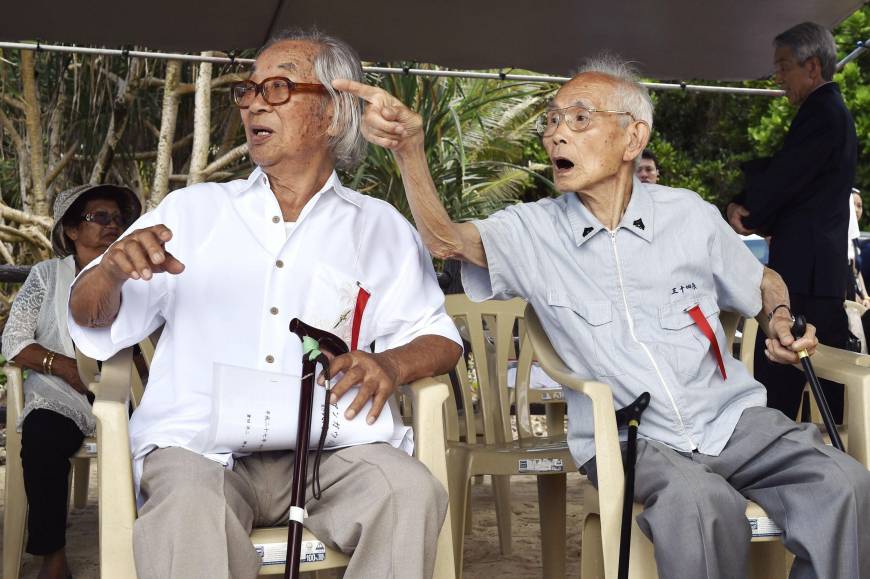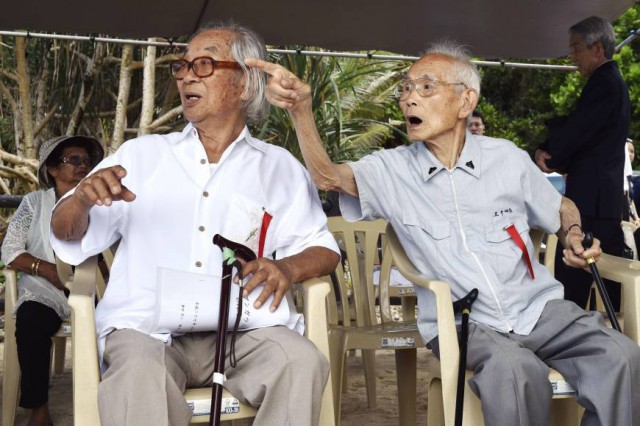Takashi Oike, who is now 93, remembers a fierce battle on Palau’s Peleliu Island, where hundreds of troops were stationed to fight off US troops in 1944.
The US first hit the island with massive air bombing raids. Once US troops arrived on the island, the Japanese soldiers had taken to hideouts in caves where they could launch surprise attacks.
Takashi was on his way to Peleliu, along with hundreds of other Japanese soldiers being dispatched to the island, but was taken off the ship before reaching the battleground, since he was found to have amoebic dysentery, a type of stomach infection.
The ship bringing the Japanese troops to the island actually became stranded just off the coast of Peleliu, and came under intense fire from US troops.
Some of the soldiers were able to swim to shore, but many of them arrived without weapons and equipment.
Takashi recalls how even though the troops were given the go-ahead to join the battle at Peleliu, rumours were rife that the battle was unwinnable.
He says that there is no doubt he would not have survived if he had continued on the ship to Peleliu. Takashi was left to recover in a field hospital and was later dispatched to another Pacific island, called Babeldaob.
His experiences there were just as dire. Takashi remembers surviving on reptiles and plants in the jungle, and says it was even painful to have survived.
After the war, Takashi returned to mainland Japan and worked for the national railways as an engineer. But even today, Takashi says that the recollections of the war and of his fallen comrades are etched into his memory.
Now this week, Japan’s Emperor Akihito and Empress Michiko are making an official visit to Palau in order to commemorate those soldiers who gave their lives, The Japan Times reports.
Records show that more than 16,000 Japanese soldiers died on Peleliu in the battle that lasted two months, and on the neighbouring island of Angaur. Around 1,600 US troops were killed in the battles.
Eiko Tamashiro, who is now 84, was a nurse working at one of the nearby field hospitals. She was untrained, but had to nurse injured soldiers on camp beds. Eiko recalls how many died and how the nurses would have to bury the bodies in makeshift graves. She says that food was also scarce and many died of malnutrition.

